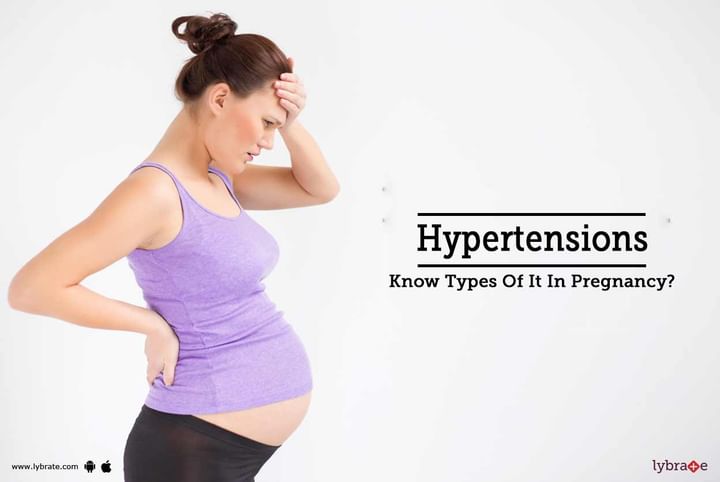Hypertensions - Know Types Of It In Pregnancy?
Hypertension or high blood pressure is common in pregnant women, even in those who have no previous history of high blood pressure. This leads to complications in about 6% to 10% of all pregnancies around the world. High blood pressure may develop before or after conception and as such needs special medical attention.
Hypertension prevents sufficient flow of blood to the placenta and this inhibits the normal growth of the fetus. This could result in low birth weight of the child. However, if diagnosed in time and treated properly, hypertension does not affect the child's health too much. There are various types of hypertension during pregnancies, such as:
1. Gestational hypertension
This type of hypertension is developed about 20 weeks after conception. There is no abnormality in urine or any signs of other organ damage (as is common with hypertension during pregnancy) but the condition can worsen and complicate very quickly. Pregnant women below the age of 20 and above the age of 40 are often diagnosed with high levels of blood pressure. Women who have heart or kidney conditions before pregnancy and women carrying more than one child are also likely to develop gestational hypertension.
2. Chronic hypertension
Chronic hypertension is high blood pressure which develops around 20 weeks before conception and does not normalize within 12 weeks after childbirth. The patient may also have been suffering from high blood pressure for a long time but the complications appear only during pregnancy because high blood pressure rarely exhibits symptoms without an associated condition.
3. Chronic hypertension superimposed with Preeclampsia
Women who have hypertension before pregnancy may develop even higher blood pressure levels during pregnancy. This leads to several health disorders like frequent headaches, fatigue and depression. Sometimes, protein is found in the urine.
4. Preeclampsia
Preeclampsia is often a serious complication of gestational pregnancy and affects about 5% to 7% of all pregnancies globally. Gestational pregnancy does not always develop into preeclampsia but it needs to be diagnosed and treated in time to avoid the complication. Women who have conceived for the first time or have a history of hypertension in the family are at a greater risk of preeclampsia. The symptoms of the condition are throbbing headaches, blurred vision, nausea and vomiting, pain in the upper abdominal region and shortness of breath.



+1.svg)
